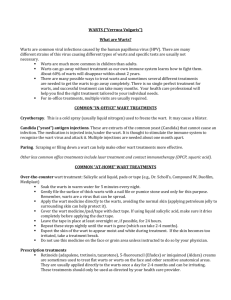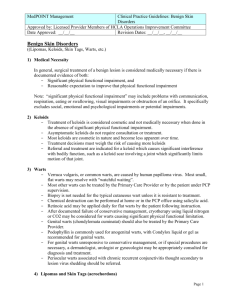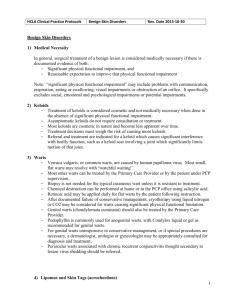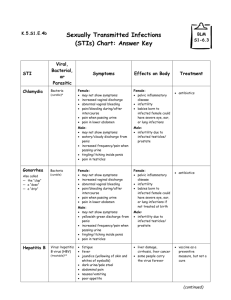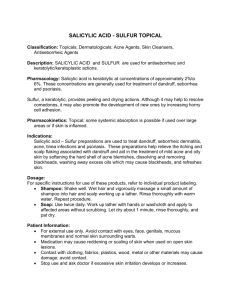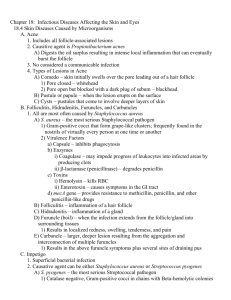anal warts - University Colon & Rectal Surgery
advertisement
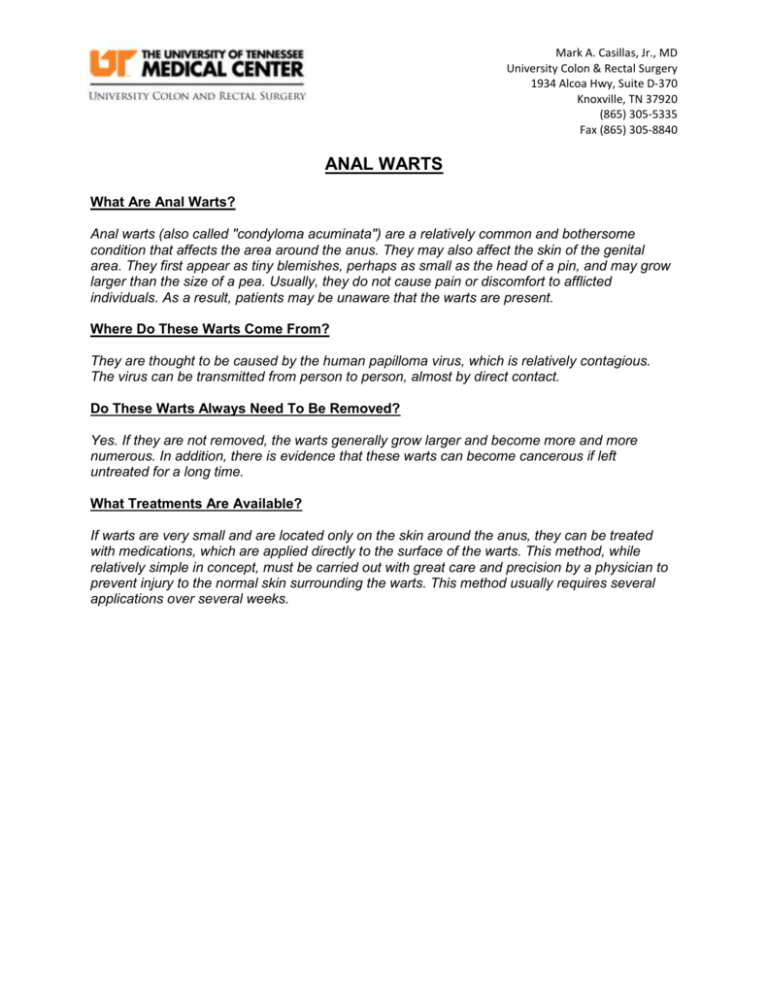
Mark A. Casillas, Jr., MD University Colon & Rectal Surgery 1934 Alcoa Hwy, Suite D-370 Knoxville, TN 37920 (865) 305-5335 Fax (865) 305-8840 ANAL WARTS What Are Anal Warts? Anal warts (also called "condyloma acuminata") are a relatively common and bothersome condition that affects the area around the anus. They may also affect the skin of the genital area. They first appear as tiny blemishes, perhaps as small as the head of a pin, and may grow larger than the size of a pea. Usually, they do not cause pain or discomfort to afflicted individuals. As a result, patients may be unaware that the warts are present. Where Do These Warts Come From? They are thought to be caused by the human papilloma virus, which is relatively contagious. The virus can be transmitted from person to person, almost by direct contact. Do These Warts Always Need To Be Removed? Yes. If they are not removed, the warts generally grow larger and become more and more numerous. In addition, there is evidence that these warts can become cancerous if left untreated for a long time. What Treatments Are Available? If warts are very small and are located only on the skin around the anus, they can be treated with medications, which are applied directly to the surface of the warts. This method, while relatively simple in concept, must be carried out with great care and precision by a physician to prevent injury to the normal skin surrounding the warts. This method usually requires several applications over several weeks. Mark A. Casillas, Jr., MD University Colon & Rectal Surgery 1934 Alcoa Hwy, Suite D-370 Knoxville, TN 37920 (865) 305-5335 Fax (865) 305-8840 Another form of treatment involves more rapid destruction of the warts using electrical cautery, surgical removal, or a combination of the two. Laser surgery may also be used but has no advantage over other treatments. These procedures provide immediate results but must be performed using either a local anesthetic - such as novocaine - or a general or spinal anesthetic, depending on the number and exact location of the warts being treated. Warts inside the anal canal usually are not suitable for treatment by medications, and in most cases need to be treated by cauterization or surgical removal. Will A Single Treatment Cure The Problem? Not in most cases, unfortunately. Even with the cautery and surgical treatments that immediately destroy existing warts, many patients develop new warts after treatment. This occurs because viruses that cause the warts can live concealed in tissues that appear normal for up to six months or longer before another wart develops. New warts will often develop from the virus that was already present in the tissue, but these are not recurrences of warts already treated. As new warts develop, they usually can be treated in the physician's office, using either chemical solution or the electrical cautery procedure. These procedures are performed every few weeks initially, then less frequently as new warts become smaller and less numerous. Sometimes new warts develop so rapidly that office treatment would be quite uncomfortable. In these situations, a second and occasionally third outpatient surgical visit may be recommended. How Long Is Treatment Usually Continued? Follow-up visits are necessary for some months after the last wart is observed to be certain that no more warts occur from viruses living in the cells of skin. Mark A. Casillas, Jr., MD University Colon & Rectal Surgery 1934 Alcoa Hwy, Suite D-370 Knoxville, TN 37920 (865) 305-5335 Fax (865) 305-8840 What Can Be Done To Avoid Getting These Warts Again? In some cases, warts may recur repeatedly after successful removal, since the virus that causes warts often persists in a dormant state in the body tissues. Following are tips to avoid recurrence and reinfection: Continue observation for several months after the last wart has been spotted to improve the chances that both the warts and the underlying virus that causes them have been eliminated. Abstain from sexual contact with individuals who have ana; (or genital) warts. Since many individuals may be unaware that they suffer from this condition, sexual abstinence or limiting sexual contact to marriage relationships will reduce your potential exposure to the contagious virus that causes these warts. As a precaution, sexual partners ought to be checked, even if they have no symptoms.
